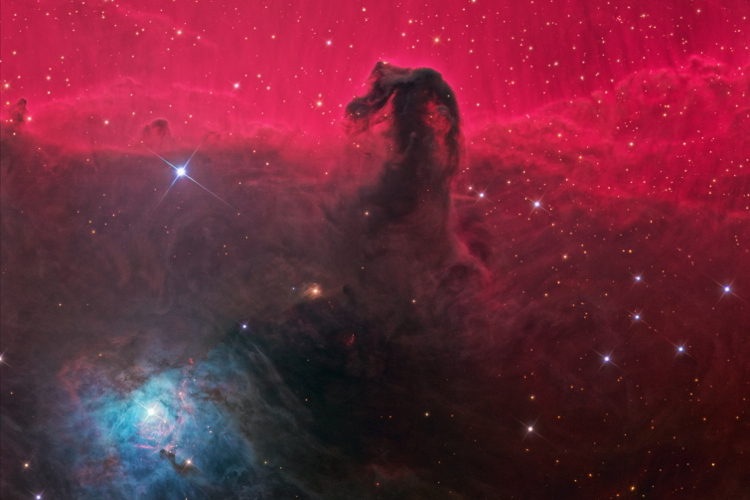
Science is developing rapidly. We are fighting diseases, delve further into the open space and the growing zoo of subatomic particles. But cosmology is trying to understand the evolution of the whole Universe, using theories that work well to describe other systems, is at an impasse in the search for answers to critical questions. We still have no idea what is in the vast majority of the Universe. We cannot understand how the Big Bang could instantly grow out of nothing, or where did the energy for “inflation”, a short period of rapid growth of the young Universe. But despite these gaps in knowledge, it is human nature — our tendency to fit the data under our beliefs — remains a big threat to modern cosmology.
Problem cosmologists
In our picture of the cosmos dominated by two components: dark matter and dark energy. They make up 95% of the energy content of the Universe, but we never did find out what they are. This problem of cosmology rightly assesses one of the most important problems of physics — explain the nature of dark energy range from proposals to abandon the theory of relativity and add a new fundamental field of nature to the existence of parallel universes, the effects of which we can observe.
Alas, but not the problem of dark energy threatens to undermine the cosmological experiments. People tend unconsciously to interpret information in a way that it comes to set of data that confirms their current beliefs. For cosmologists, this unconscious (or conscious) adjustment of the results leads to confirmation that they made earlier. But this is particularly disastrous for cosmology, since, unlike laboratory experiments, we cannot perform many repetitive experiments to explore statistical anomalies — we only have one universe.
Study all published literature on cosmology between 1996 and 2008 showed that the statistics of the results was too good to be true. Statistical dispersion of the results is not consistent with what you would expect mathematically that means the consent of the cosmologists among themselves. Either the results were adjusted to reflect the status quo, or were selected only those documents which was correlated with the status-quo of the host magazines.
Unfortunately, as we improve the quality of experiments, this problem will become increasingly difficult to avoid. The majority of cosmologists in the answer to the question, what is dark energy, will answer that it is most likely vacuum energy. Ask the cosmologists, whether they think that Einstein’s theory true on a cosmic scale, and they will say, Yes, correct. How then to convince the wider scientific community (and humanity) that any cosmological discovery is not just the result of wydawania of wishful thinking?
Problem solving
There are three ways to solve this problem, which are equally effective. First, is the creation of data sets containing false signal to scientists performing the cosmological analysis, can detect this signal and increase the level of confidence in their own work.
A blind analysis and control fence is successfully used in biology. The issue of cosmology that we have no control group, control the universe, only one, so that any blind data will have to forge or randomize. A blind analysis already used in cosmology, but that’s not the end of the story.
In addition to a blind analysis there are two approaches that are practiced less, but remain important. The first engineering approach to the design of the experiment. In this approach, every tiny aspect of the experiment has a number of requirements or criteria, and independent from the result of tests that must pass before turning. The idea is that if each subsection of the analysis will pass these tests, in General, will turn out objective results. The second approach — transparency, publish data and code in a public place so anyone could download and check for the absence of hidden parameters is rigged and dodgy data.
Three such approaches — blinding, engineering systems and transparency will allow the next generation of cosmological experiments to become convincing enough for people that cosmologists do not wishful thinking. Without this, looking at the sky, we risk the most interesting finding will be we ourselves.
